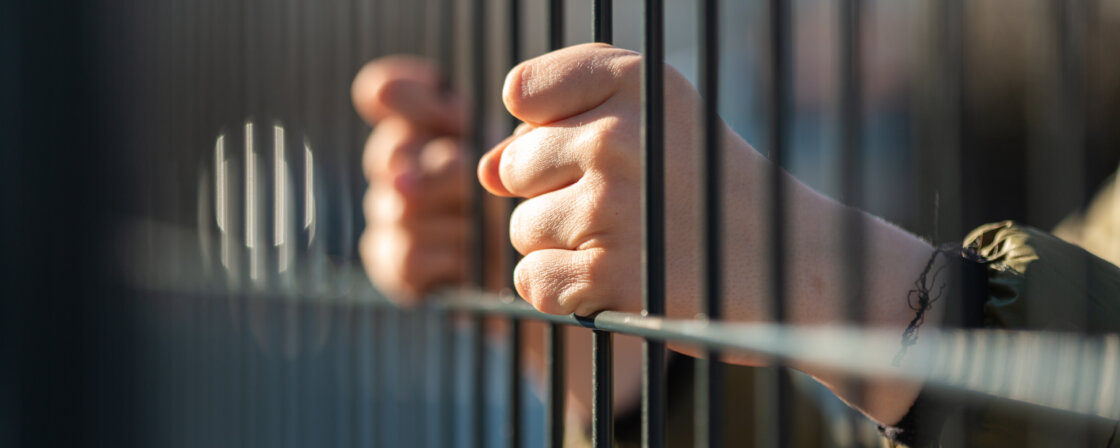Exceptional punishment in the Czech legal system
Life imprisonment is one of the two exceptional sentences that courts in the Czech Republic can impose. Exceptional sentences are reserved for the most serious crimes and represent the most severe criminal sanctions in the country. The other exceptional sentence is imprisonment for 20 to 30 years, which is a less severe option that is imposed when there is hope of reforming the offender.
Before 1990, the death penalty was imposed in the Czech Republic (and previously in Czechoslovakia) for the most serious crimes, including brutal murders or terrorism. This penalty was abolished in 1990 when Czechoslovakia acceded to international agreements requiring its abolition. Life imprisonment thus became the highest possible punishment, replacing the absolute death penalty.
The court may impose life imprisonment only in cases where the danger to society is extremely high and there is no hope that the offender can be reformed by a more conventional punishment. The conditions under which this penalty may be imposed are strictly defined by law and relate mainly to brutal or multiple murders, treason, genocide and other particularly serious crimes. Life imprisonment thus acts as the ultimate means of protecting society from the most dangerous criminals.
Are you solving a similar problem?
You are unhappy with the outcome of the court proceedings and would like to appeal the judgment
Looking for a reliable attorney to stand up for your rights in a criminal case? Contact us. We will conduct a careful analysis of your case and take care of preparing a pre-indictment notice, a lawsuit, an appeal or straight representation in court.
I want to consult
- When you order, you know what you will get and how much it will cost.
- We handle everything online or in person at one of our 6 offices.
- We handle 8 out of 10 requests within 2 working days.
- We have specialists for every field of law.
Tip for article
What is the range of punishments judges realistically use and can they predict what kind of punishment a particular crime will carry? When is it possible to impose a suspended sentence and when, on the contrary, do they reach for the highest penalties? Find out in a separate article.
When can they put you away for life?
Life imprisonment can be given for enumerated offences, which means that they are precisely defined by law. These include, in particular, murder committed in a particularly brutal manner, terrorist attacks with intent to kill, treason, general endangerment with fatal consequences or genocide.
In order for this penalty to be imposed, it is important that the act be committed in a particularly deplorable manner or for particularly deplorable reasons. The law requires that the perpetrator’s conduct must be out of the ordinary in its brutality or callousness and pose an extraordinary risk to society. Examples may include multiple murders, murders of children or defenceless victims, or attacks motivated by extreme hatred.
The decision to impose life imprisonment is therefore a crucial one, requiring a thorough assessment of whether the offender is so dangerous that reformation is unrealistic. Only in such cases can the court impose this most severe penalty that exists in Czech law.
Life sentences in the Czech Republic
Life sentences are relatively rare in the Czech Republic. Based on available statistics, only a few offenders are given this sentence each year. At the end of 2023, there were a total of 49 life sentenced prisoners in the Czech Republic, three of whom were women. One well-known example in the media was the case of Mr Z. K., who decided to take revenge on his wife, who had moved in with her son because of a disagreement. Mr Z. K. visited his son’s apartment on the 11th floor, where he set fire to the front door at the moment when a birthday party was taking place in the apartment. Six people died right inside the apartment and five others did not survive the jump from the window.
Other well-known cases include Jiří Kajínek, who was sentenced to life imprisonment for double murder in 1998, but was granted a presidential pardon by President Miloš Zeman in 2017 and released after 23 years. However, such cases are not frequent, and parole is a rather theoretical possibility for those sentenced to life imprisonment. They can apply for release after serving 20 years, but the courts often reject the applications.
Life imprisonment therefore has very strict rules in the Czech legal system, and its granting and possible conditional release are assessed very carefully.
Execution of a life sentence – what awaits the convicted?
Life imprisonment in the Czech Republic is subject to strict rules. Those sentenced to life imprisonment spend their sentences in special wards of prisons where stricter security measures apply. They spend most of their time alone, often in separate cells, and have limited opportunities for movement and contact with others. They are usually accompanied by a guard on walks and visits, and these activities are severely restricted to ensure safety.
Life prisoners are allowed to work, but only inside the prison and under strict conditions.
On the other hand, however, even if a life sentence is imposed, it does not necessarily mean that convicts will spend the rest of their lives in prison. After 20 years, they can apply for parole. However, as we mentioned above, the courts very rarely approve them. The applicant must show that he or she has made significant progress during the sentence, which is assessed, for example, by psychological tests. If the convicted person fails to show sufficient signs of reform, the court will refuse the application.
Life imprisonment abroad: how does the approach to punishment differ?
Differences in the approach to life imprisonment show how differently different countries assess the dangerousness of offenders and how differently they view their potential for rehabilitation and protection of society. This variability also reflects cultural and legal differences between countries.
Other countries have very different rules on the imposition of exceptional sentences. For example, in the US, life imprisonment is much more common and in some countries there is also a non-parole option. Some US states are also known to impose repeated or multiple life sentences or, for example, a sentence of 136 years’ imprisonment, which is up to several times the normal life expectancy. There are also well-known “three times and enough” laws, whereby an offender can be given life imprisonment even for less serious crimes if he commits them repeatedly.
Norway, for example, limits the maximum prison sentence to 21 years, even for crimes such as the case of mass murderer Anders Breivik. However, this sentence can be extended repeatedly if the person is still considered a threat to society. In New Zealand, life imprisonment is the standard sentence for murder, but can be reduced if the circumstances of the crime are not so serious.
Brazil, on the other hand, has neither life imprisonment nor the death penalty in its penal system. The maximum sentence here is 30 years, even for very serious crimes.
Summary
Life imprisonment is one of the two exceptional sentences in the Czech Republic, imposed for the most serious crimes such as brutal murders or terrorism. It can only be imposed for precisely defined crimes if they have been committed in a particularly despicable manner. The uniqueness of this punishment also lies in the way it is carried out. Although there is theoretically the possibility of parole after 20 years, the courts very rarely approve it.




